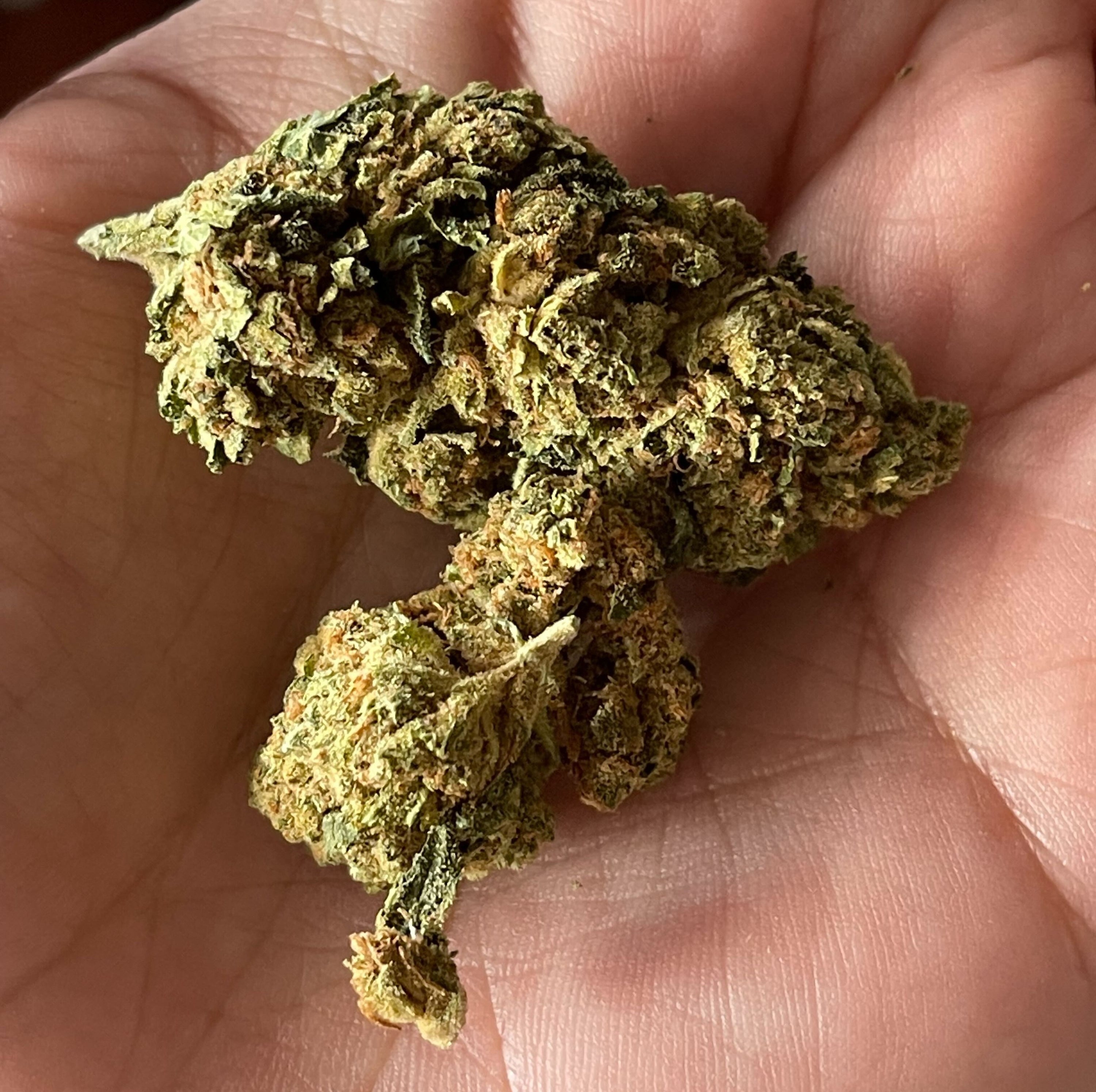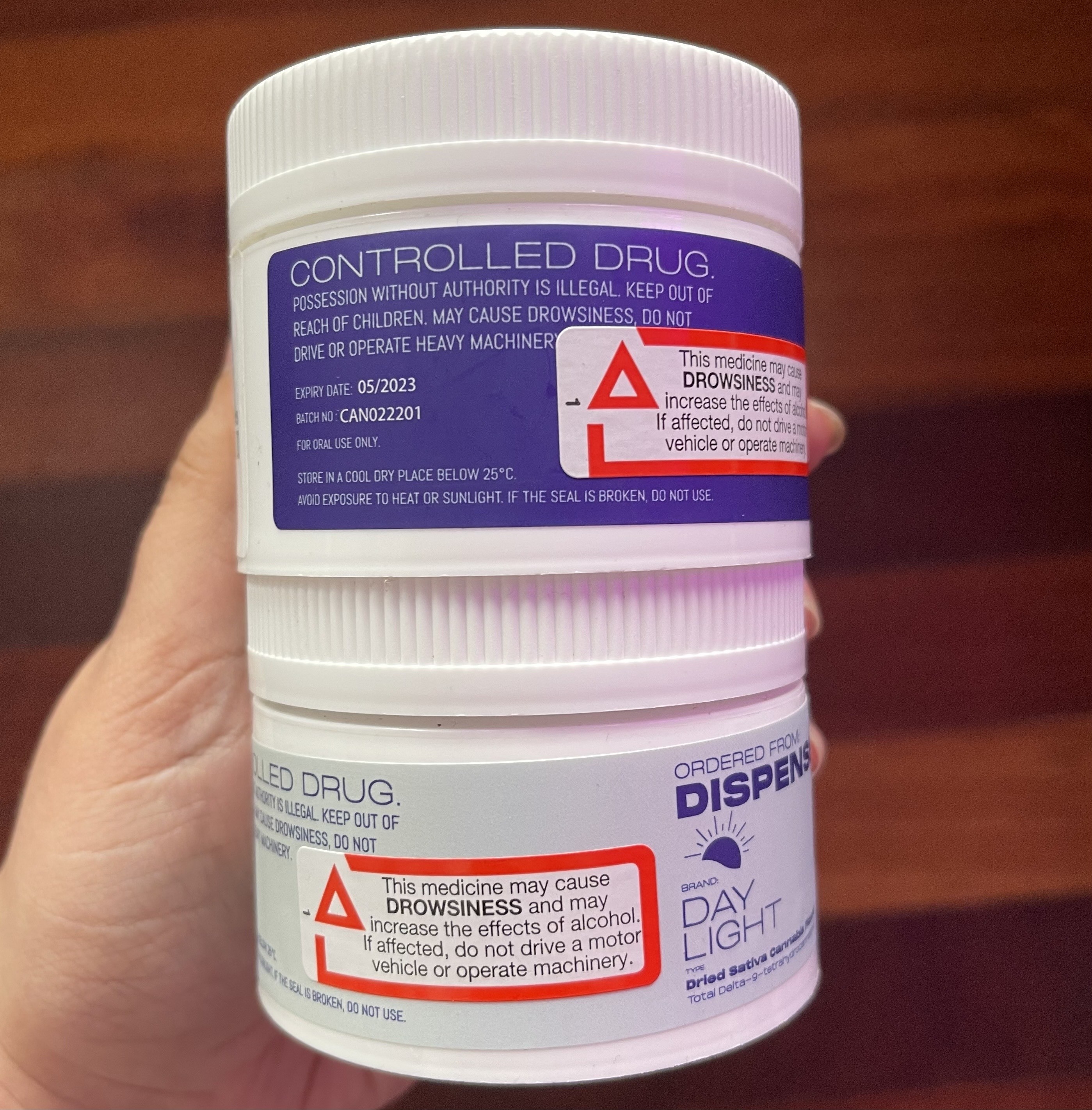At a dinner with some friends recently, the topic of medicinal cannabis came up. Up until this point, I'd figured that the only people eligible would be people with chronic pain or extreme illness, but it turned out that the boss of someone in attendance was having it prescribed for insomnia and anxiety.
Like any curious person, especially one who suffers from the aforementioned mental health issues, I checked out the website that said boss used, but ultimately decided against looking into it any further at that point.
The process seemed quite complicated and honestly, after being gaslit by different doctors about my issues — I wasn't mentally prepared for that to happen yet again.
I didn't think much of it and continued about my life — but then I stumbled across a Reddit thread with interesting information about accessing medicinal cannabis, prompting me to deep dive into the r/MedicinalCannabisAus subreddit and others just like it.
One resource I found particularly useful was Honahlee — a website stacked with information that's incredibly helpful for patients and prescribers alike. I highly recommend checking them out after reading this article for more information on everything discussed.
At this point, I knew that medicinal cannabis was available for the treatment of mental health issues, but I didn't know how easy it actually would be to access — provided the relevant criteria was met, of course.
In late 2016, the Australian federal government passed legislation to allow medical practitioners to prescribe cannabis-based products (described as "unregistered medicines") through a program called the "Special Access" and "Authorised Prescriber" Schemes.
Yep, that's right — even your GP can prescribe you medicinal marijuana if they deem you eligible and believe it's the right call for treatment. All they have to do is apply through the SAS [Special Access Scheme], which is an online system accessible for healthcare professionals. The AP [Authorised Prescriber Scheme] is for practitioners to become authorised to prescribe medicinal cannabis without having to submit an application [for up to five years] to the SAS each time.
To be eligible for a medical cannabis prescription, you have to have exhausted your other options for treatment. This includes pharmacological and non-pharmacological treatments.
Unfortunately, to be eligible for a medicinal cannabis prescription, in most cases you need to have tried everything else and found that it hasn't actually been helpful — or had unbearable side-effects that prompted you to stop.
That being said, it wouldn't hurt to have a conversation with your medical practitioner about any fear or reluctance you may have about trying conventional treatments, if you're pursuing medicinal cannabis as an option.
If your doctor deems you eligible, you'll be prescribed THC or CBD — the two most common cannabinoids present in the plant, or you could even be prescribed a combination of both.

The legalities surrounding carrying and taking your medicine day-to-day are still a little cloudy.
I'm someone who likes to avoid confrontation or trouble when I'm out and about, so the idea of being approached by another person or a police officer questioning what I'm doing sounds like a nightmare.
Because the laws aren't clear when it comes to public consumption, I would say it's best to avoid it if you can and stick to taking your medicine at home or somewhere private and safe. If you are headed somewhere and need to take it with you, it's important to carry your script and to keep your medication in its original container — which should have your name and prescription attached to it.
Because of the nature of roadside drug testing, it's likely that if you're prescribed THC as a treatment and take it as an inhalant, it'll be detectable in your saliva for days or even weeks after you consumed it. Driving with any amount of THC in your system is illegal in Australia.
So, you think you're eligible, you understand the legalities and the effects of medicinal cannabis and you think it'd be a good option for you. What now?
Your first point-of-contact should always be your doctor. Discuss your options with them and see how they feel about you sourcing this kind of prescription. I talked to my GP about medical marijuana when we were discussing treatment for my mental health symptoms. Her response was that research was still ongoing about its effectiveness — but that the same could be said for pharmacological medication meant to treat the same symptoms.
The cost for consultations and medication varies from site to site — but some will charge for your consultation and your prescription, which you can then use to purchase your medicine at an additional cost.
Others don't charge for consultations or scripts, but supply the treatments internally — which leads some to suspect that they may be hiding the cost of consultation in the price of the medicine.
When you've got your prescription and have placed your order, most suppliers will have the medicine delivered to your door within 48 hours via Express Post. That's right, a postie will literally hand you a parcel of medical cannabis as if it's a pair of pants from ASOS.
If you decide to access medicinal cannabis through an avenue other than your current GP, it's important for you to do your own research to understand the products that'll be available to you, because they do vary place to place.
Some dispensaries have a larger range of options when it comes to your treatments and some may only carry one or two types of each treatment. If you're after a variety, it's important that you're choosing a dispensary that offers treatments from a range of suppliers.
If you're not concerned about the specifics or are new to cannabis and want to try it out, it might be more economical to use a platform that only offers a small selection of products — but doesn't charge fees.
I'd suggest researching the platform thoroughly and even searching for reviews on Reddit (yep, they exist!).

